Can mulch catch fire? Fire chief warns of spontaneous combustion risks from common mulching materials
There are simple steps to take to avoid mulch from catching fire and causing damage to your backyard or home

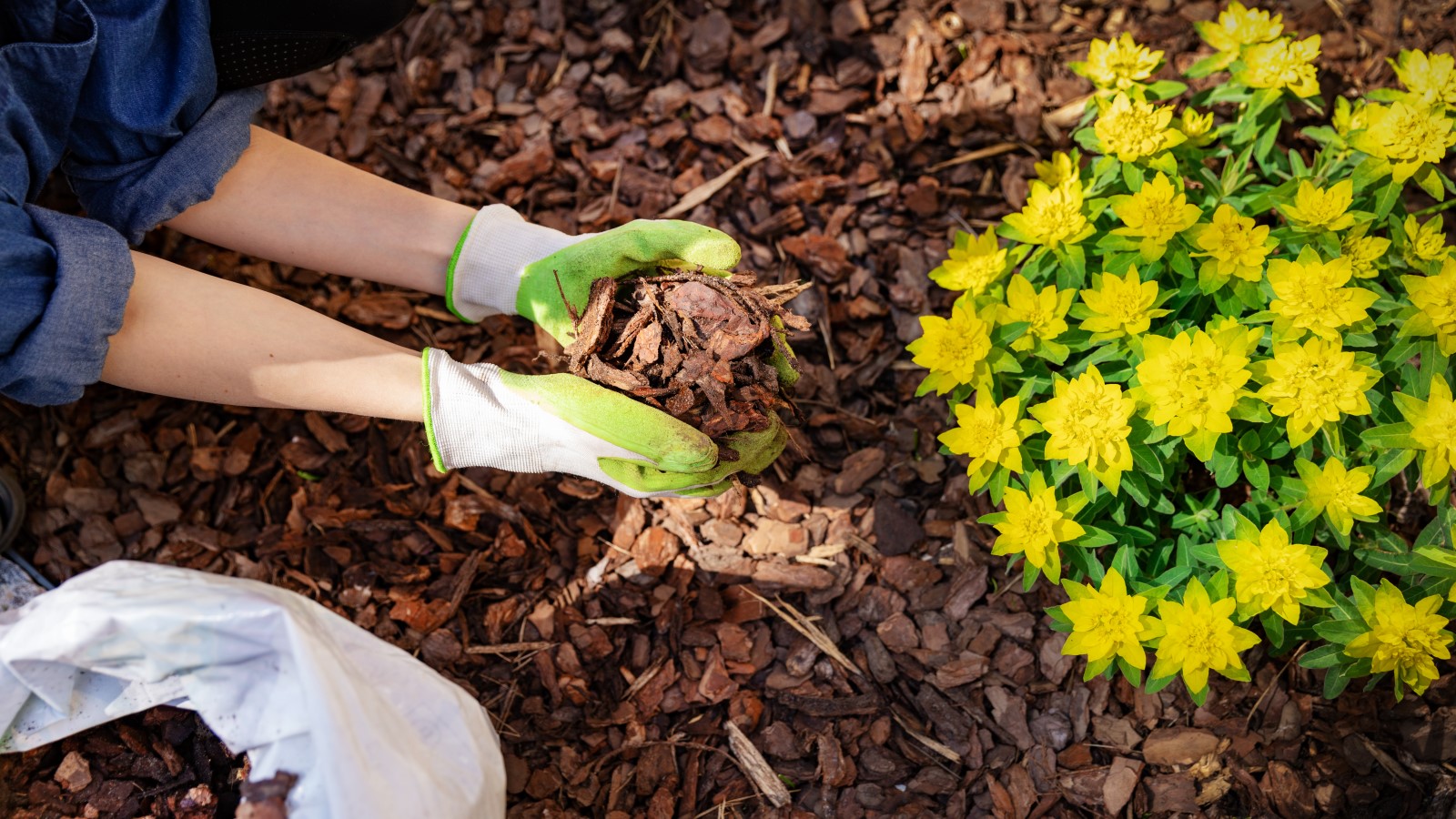
Design expertise in your inbox – from inspiring decorating ideas and beautiful celebrity homes to practical gardening advice and shopping round-ups.
You are now subscribed
Your newsletter sign-up was successful
Want to add more newsletters?

Twice a week
Homes&Gardens
The ultimate interior design resource from the world's leading experts - discover inspiring decorating ideas, color scheming know-how, garden inspiration and shopping expertise.

Once a week
In The Loop from Next In Design
Members of the Next in Design Circle will receive In the Loop, our weekly email filled with trade news, names to know and spotlight moments. Together we’re building a brighter design future.

Twice a week
Cucina
Whether you’re passionate about hosting exquisite dinners, experimenting with culinary trends, or perfecting your kitchen's design with timeless elegance and innovative functionality, this newsletter is here to inspire
Mulch fires are an unfortunate problem that are becoming more common due to rising temperatures. Such fires can be caused by one of two reasons, either the mulches are not managed properly or they are exposed to heat sources.
Despite the dangers, mulching is important as part of any annual maintenance of a backyard. Mulches can smother weeds and help retain moisture in the soil, however, you need to take into consideration what type of mulch you use where.
The likes of shredded rubber, pine needles, and cedar mulch are highly flammable and need to be used a good distance away from the home. They also need to be away from sources of heat, with the likes of grills, fire pits, or lighting now commonplace in backyards. Both the choice of materials and positioning of mulches can reduce any potential risks of them combusting.
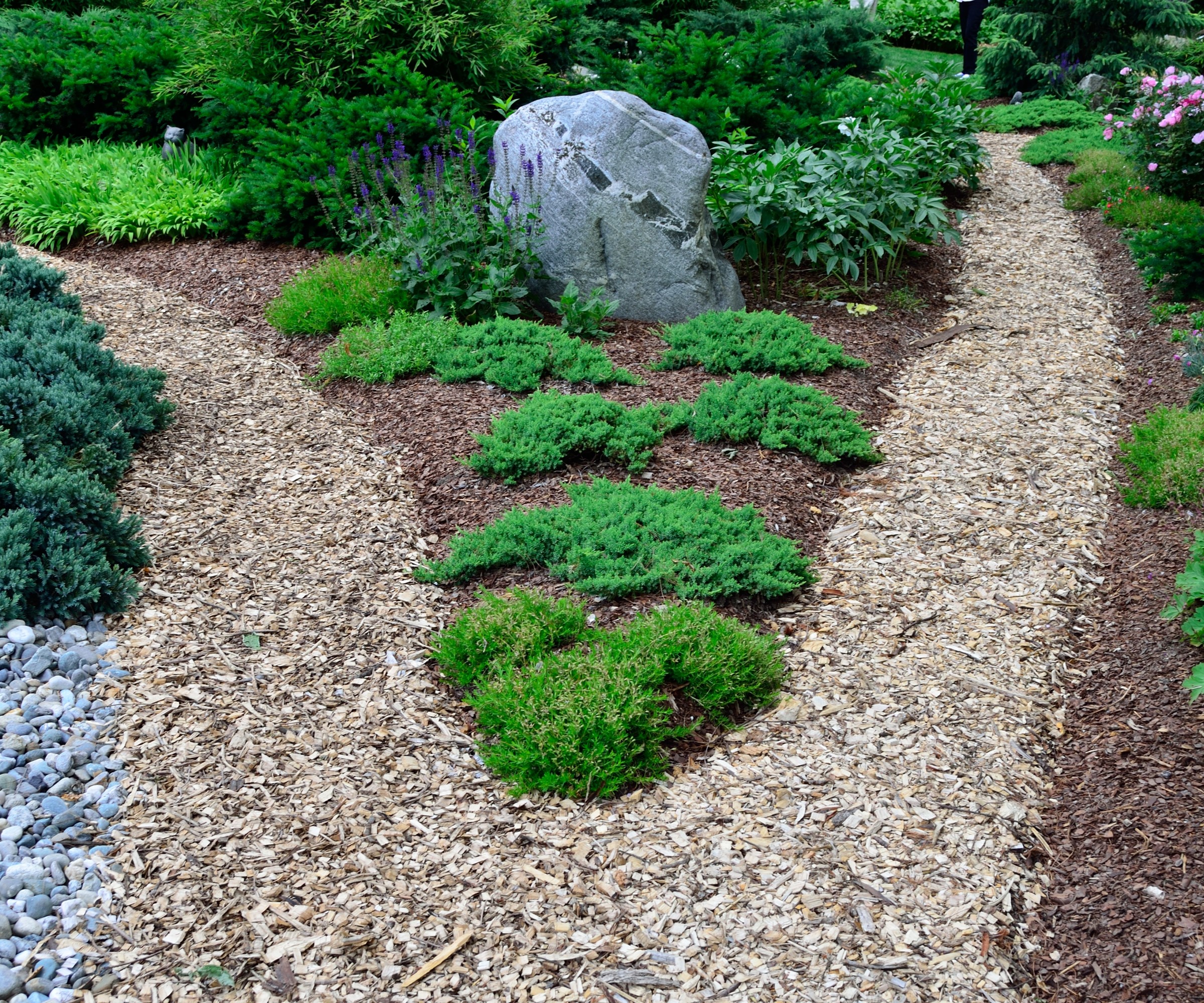
Mulches can be used to create pathways through a space
What causes mulch to catch fire?
Mulches can generate the heat required to ignite if they cover a large and compacted area, or have been piled up too thickly. This, combined with an extended period of hot and dry weather, and strong winds, can cause many mulches to catch fire.
Charles A. Moore, Fire Chief at Truckee Meadows Fire & Rescue in Nevada, warns that he has seen ‘a number of mulch fires that result from spontaneous combustion’ in his 40-year career.
He warns: ‘These fires occur in hot and dry (and especially breezy) conditions where the depth of mulch and organic material is sufficient to decompose and generate its own heat.
‘This can occur in planting beds or pots. One such fire occurred last year when a large south-facing pot ignited and spread to the surrounding deck, which spread to an exterior wall of the home.
Design expertise in your inbox – from inspiring decorating ideas and beautiful celebrity homes to practical gardening advice and shopping round-ups.
‘The fires can cause significant damage, especially when the organic material is next to the home or on a combustible surface such as a wood deck.’
Other outside factors that can cause mulch to catch fire are being exposed to sources of ignition, including cigarettes, cigars, grills, matches, or fireworks. As mulch is a combustible material, it means any human-caused ignition factors can quickly lead to a blaze.
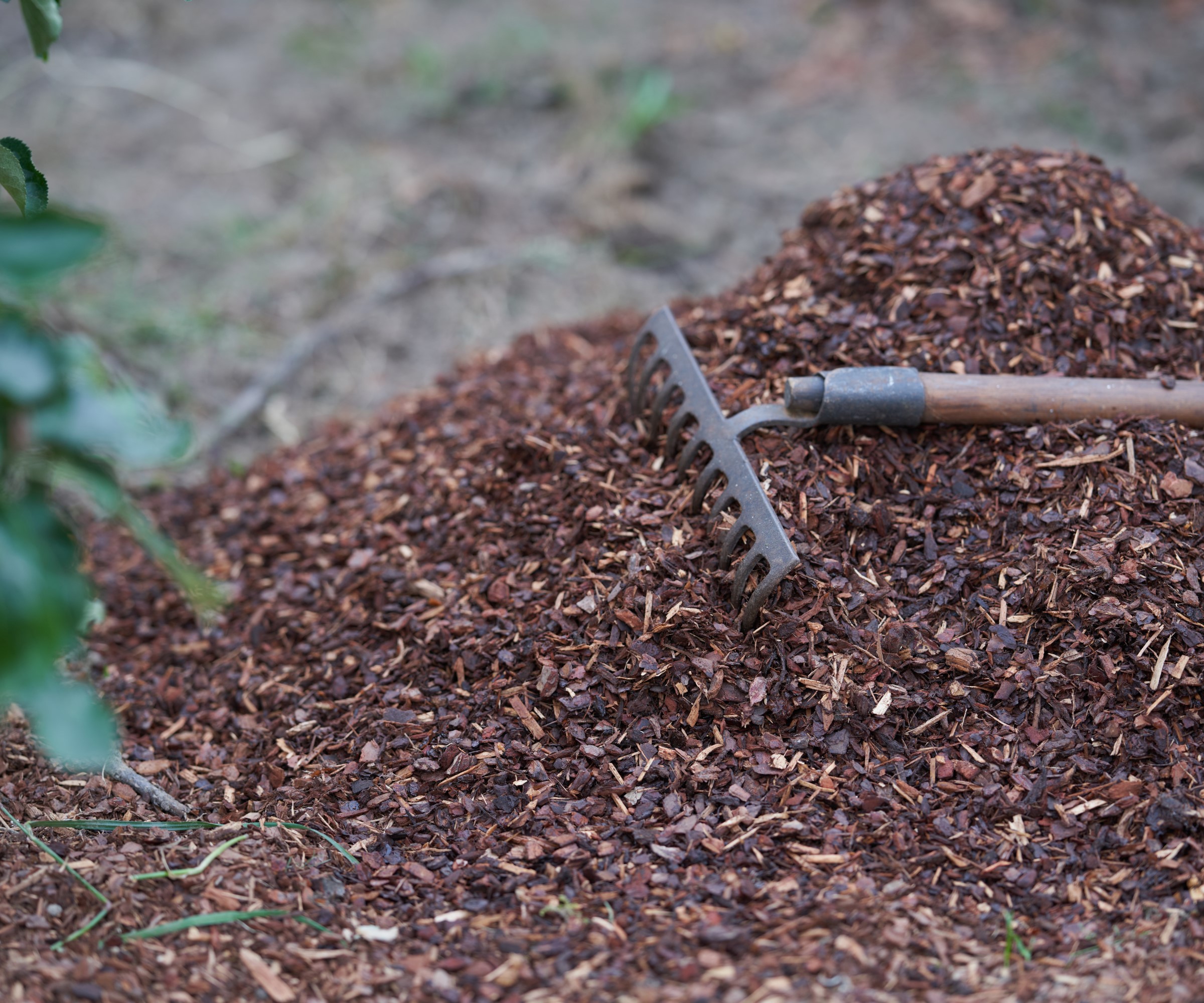
Pine bark can combust in hot, dry, and windy weather if piled too thickly

Charles A. Moore has been Fire Chief for Truckee Meadows Fire Protection District since 2012 and he has over 40 years of experience in the fire service. He has held every position in the fire service, from firefighter, driver/operator, lieutenant, captain and fire marshal, and graduated from the University of Colorado at Boulder with a degree in Environmental Design.
Which mulch is most flammable?
The most flammable common mulching materials include the likes of pine needles, cedar mulch, shredded bark, dry dead leaves, or wood chips. Fire can spread quickly through these dry and organic materials. Another common culprit is shredded rubber, which does not spread flames as fast, but produces intense and large flames and also emits a horrible smell.
It is recommended that the most hazardous mulching materials, including shredded rubber, pine needles, and cedar mulch, are not used as a mulch within 30 feet of any home.
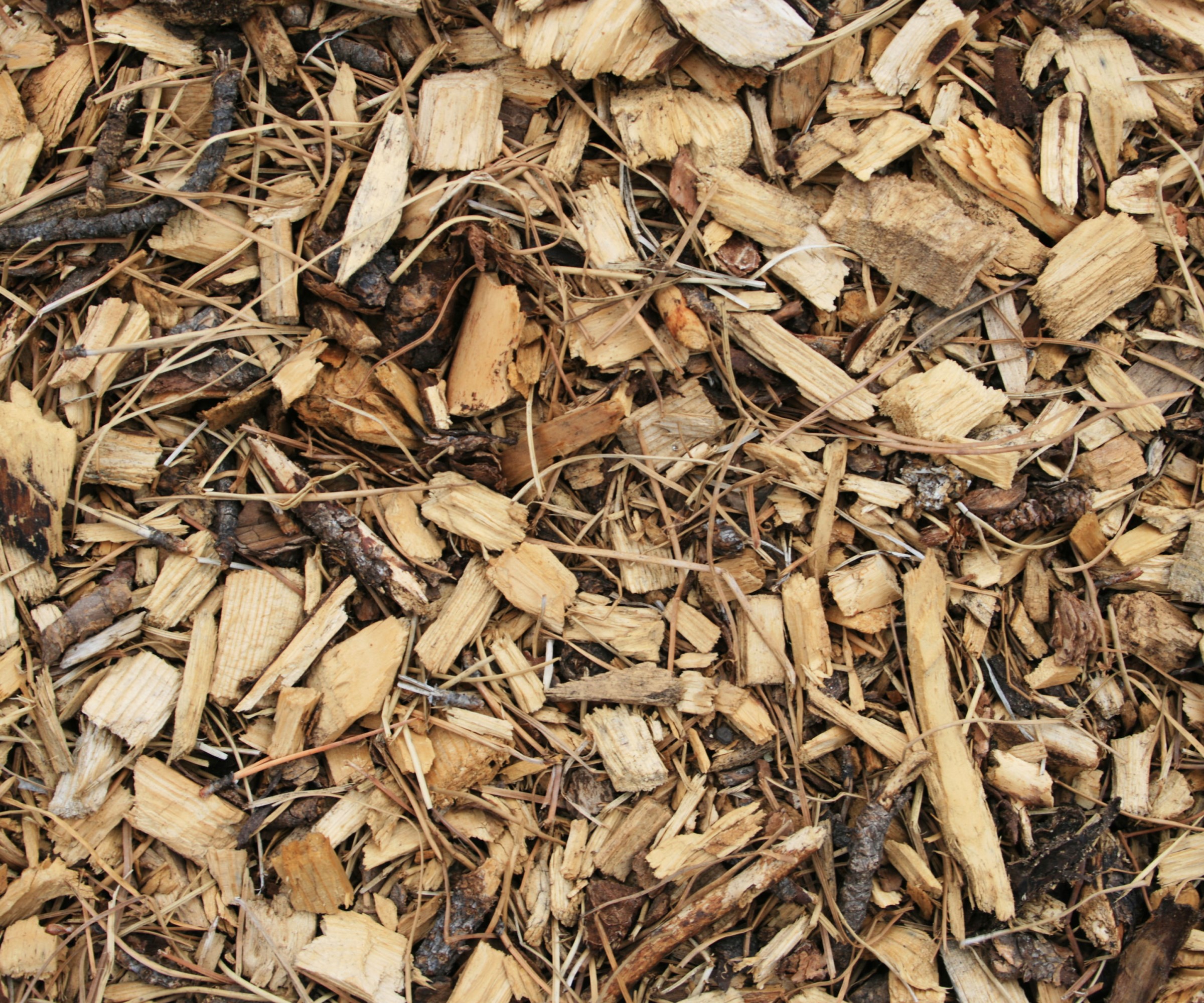
Wood chip and pine needles are two highly flammable mulches
How to avoid a mulch fire
There are simple measures to adhere to if you want to prevent any potential mulch fire. This includes using types of mulch that are less flammable, such as compost, leaf mold, or grass clippings from mowing a lawn, and to not pile the mulch very thick – no more than 2-4 inches is necessary when you mulch flower beds or borders.
Charles A. Moore also recommends that home gardeners ‘keep the material away from combustible surfaces or the exterior of a home and keep the material well-watered and moist’ to prevent fires.
Ella Meager, a permaculture teacher and experienced homesteader, warns that potential fire risks are ‘even more severe’ due to an increase in drought-like conditions in many US states in 2023. Hotter summers in the future, and an increase in prolonged periods without moisture, can potentially make mulch more likely to ignite.
She recommends six measures to help reduce the risks of a mulch fire damaging your home:
- Keep mulch away from your home Only install wood chips, bark, pine needle, or cedar mulch at a safe distance.
- Avoid rubber mulches Having any quantity of burning rubber near your home could spell disaster.
- Use rock perimeters Consider landscaping with rocks and add a robust rock perimeter around your cedar, bark, or pine mulch to help prevent any potential fires from spreading.
- Plant native, non-resinous shrubs Low-growing landscaping shrubs that get watered frequently are the perfect crop to grow around your home. Choose native shrubs that lack flammable saps and resins.
- Keep your grass short If you have grass around your home, keep it short! Long grass has a much higher chance of helping a fire spread. But short grass doesn't have much surface area to ignite – and gives a potential fire much less fuel.
- Use gravel, rock mulch, or patio pavers around your home Non-flammable gravel is perfect for walkways and home perimeters. And, it won't help spread fires like dry cedar or pine mulch.

Elle Meager is a qualified permaculture teacher with a diploma in horticulture and naturopathy. She is the founder of Outdoor Happens – a website dedicated to helping homesteaders garden, raise animals, and produce homegrown food. She lives on a farm with cows, sheep, horses, chickens, and a bunch of horses.
To reduce the potential for human-caused mulch fires, always take care when starting any fires, grilling, or setting off fireworks at home. Also, refrain from ever throwing away lit cigarettes or cigars around the backyard. As well as mulch, there may be other combustible materials around the yard and cigarette butts have also been known to start wildfires.
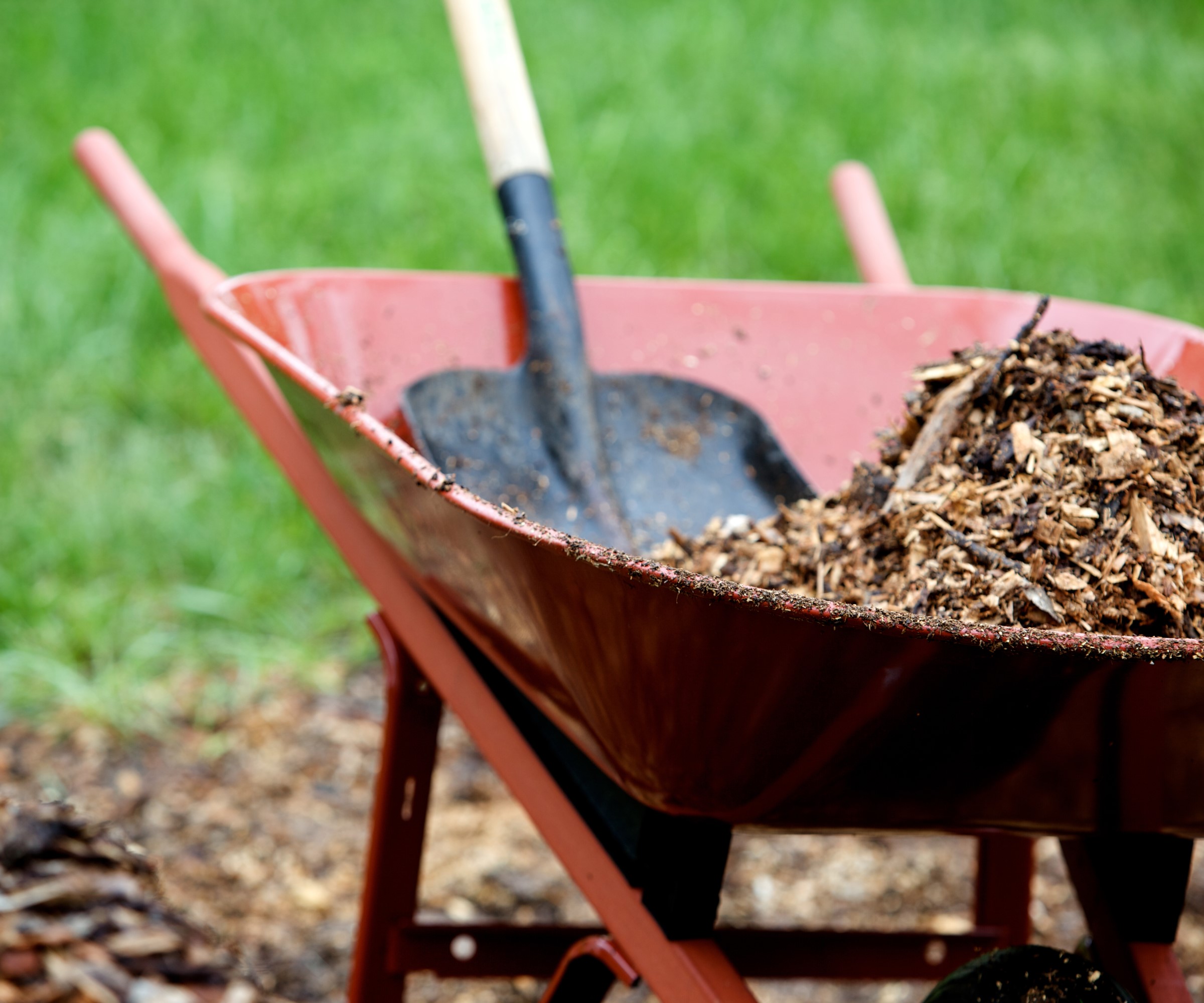
Flammable mulches should be spread far away from the home
Mulch fires are preventable and the risks of your home being damaged can be mitigated. The use of mulch is recommended as part of any backyard ideas, but always ensure to keep flammable materials far away from your home and away from the likes of backyard fire pits or grills that may be in your yard.
It is always advisable to use non-flammable mulch closer to the property, avoid thick layers of potentially flammable mulches, and keep any mulch moist during periods of hot and dry weather.

Drew has worked as a writer since 2008 and was also a professional gardener for many years. As a trained horticulturist, he worked in prestigious historic gardens, including Hanbury Hall and the world-famous Hidcote Manor Garden. He also spent time as a specialist kitchen gardener at Soho Farmhouse and Netherby Hall, where he grew vegetables, fruit, herbs, and cut flowers for restaurants. Drew has written for numerous print and online publications and is an allotment holder and garden blogger. He is shortlisted for the Digital Gardening Writer of the Year at the 2025 Garden Media Guild Awards.